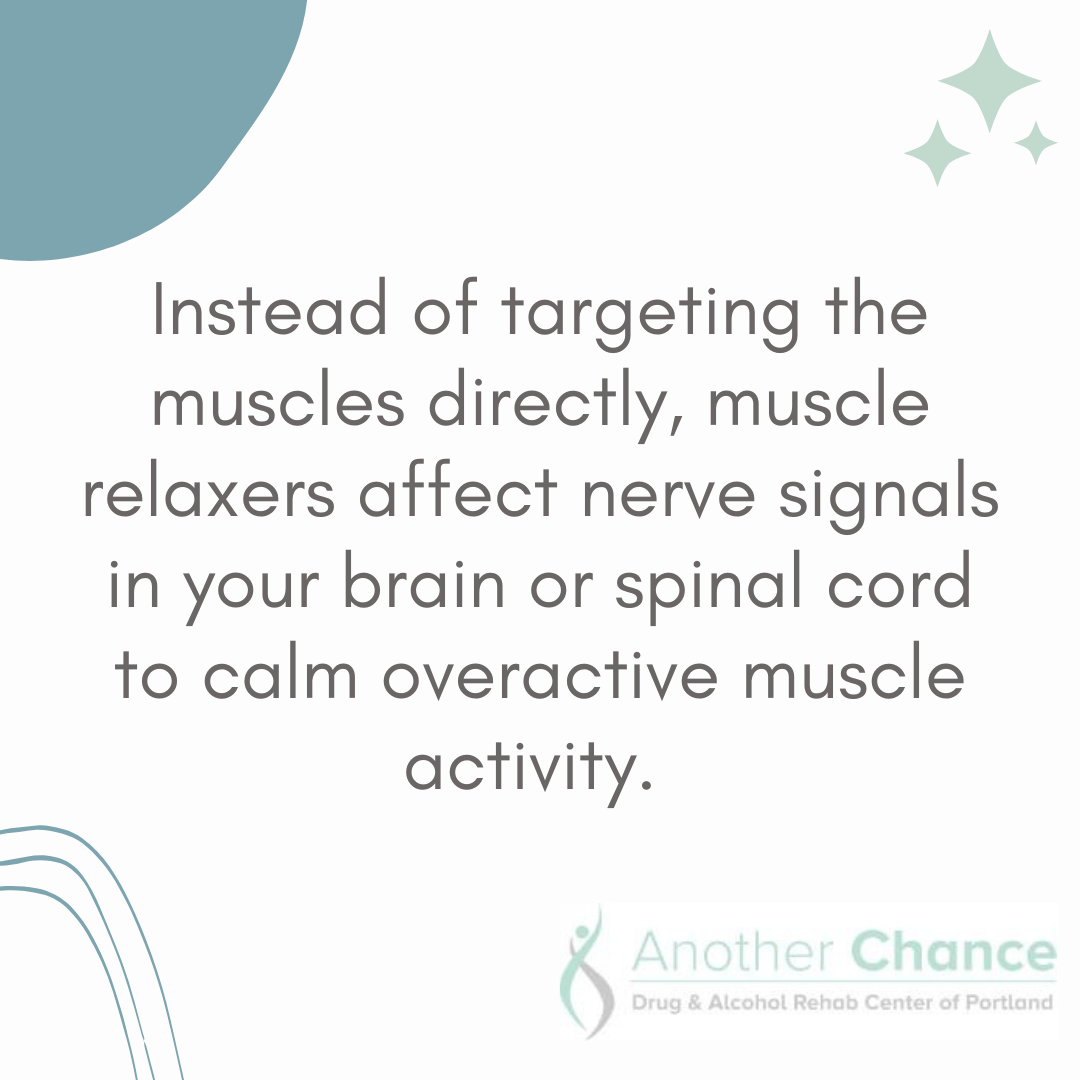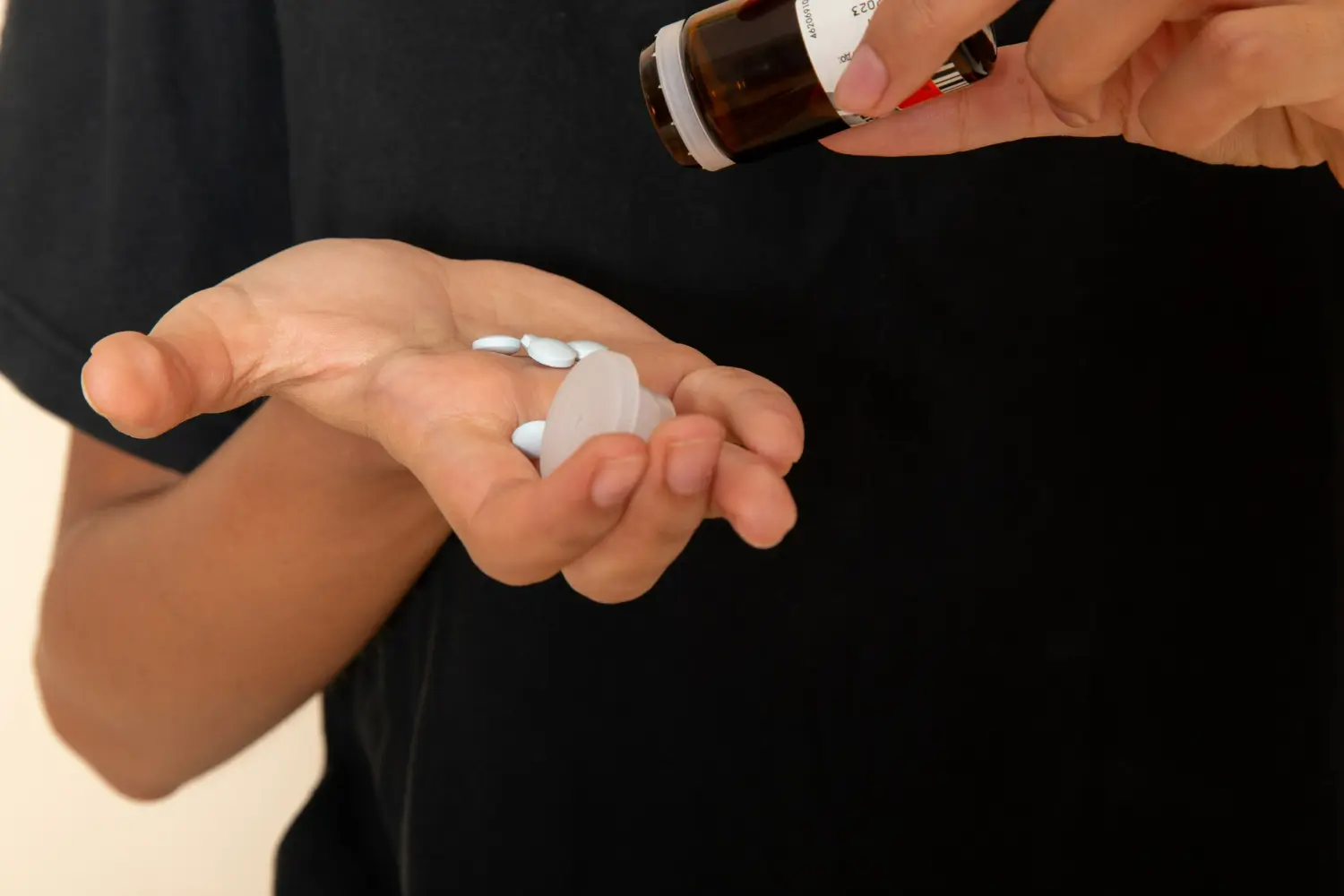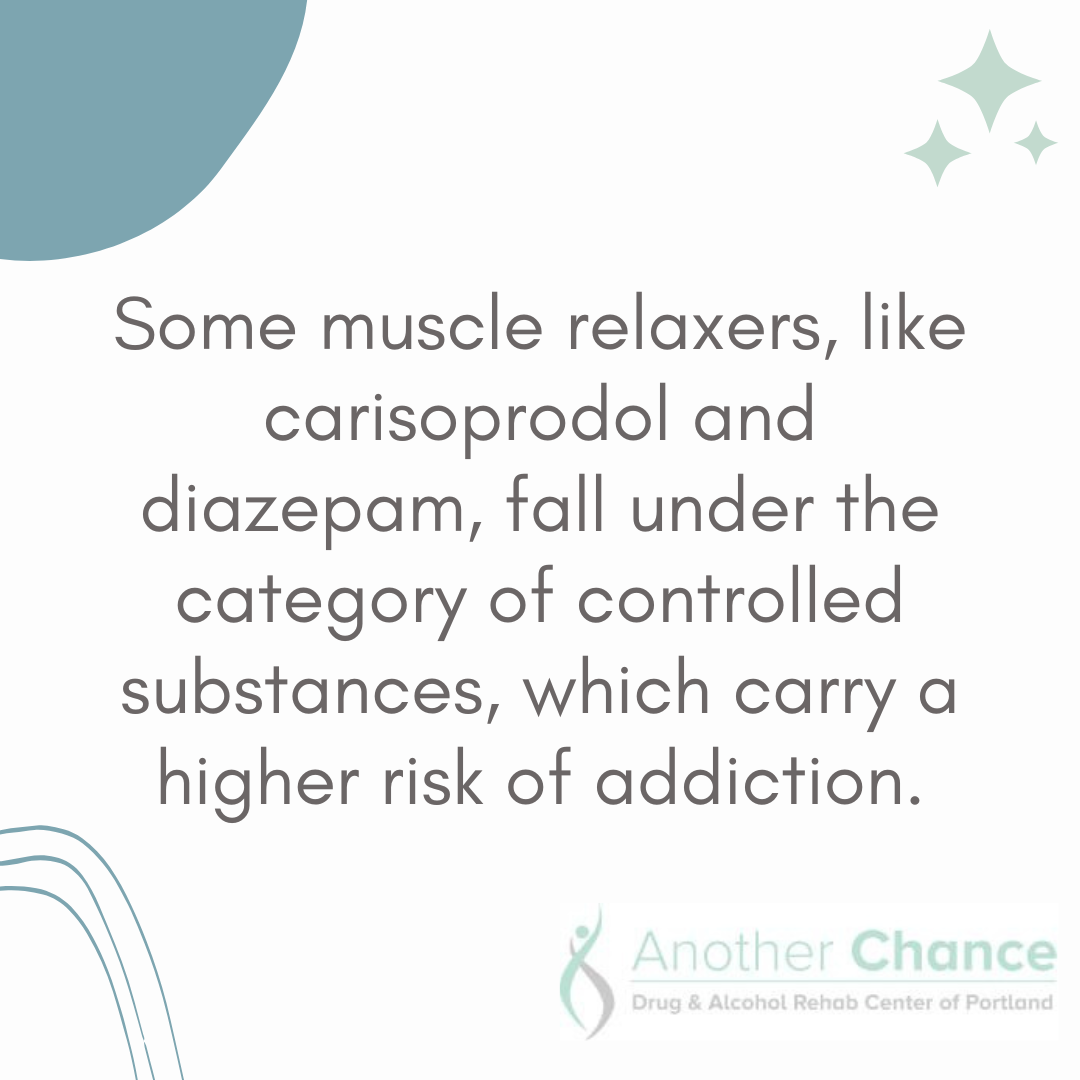July 18, 2025
Does muscle relaxers cause addiction? Learn the risks, signs of dependency, and how to use prescription muscle relaxers safely to avoid addiction.
When you think of addiction, you might picture illegal drugs or heavy alcohol use. However, addiction and substance abuse goes beyond that. Prescription medications, including ones you may take for pain or muscle spasms, can also be misused. So, it’s no surprise if you might wonder: Do muscle relaxers cause addiction?
Here’s the short answer: While they can offer short-term relief, they also carry the potential for dependence when not used as directed.
This blog will explore how muscle relaxers can lead to addiction, breaking down how they work in your body, the difference between proper use and misuse, and the common warning signs that may indicate a growing dependence.

Have you ever dealt with back pain, muscle spasms, or a sports injury? Then your doctor may have prescribed a muscle relaxer. These medications, also called muscle relaxants, help relieve such discomfort.
Instead of targeting the muscles directly, muscle relaxers affect nerve signals in your brain or spinal cord to calm overactive muscle activity. This helps reduce spasms, relieve pain, and improve mobility, especially when paired with rest or physical therapy.
Most muscle relaxers focus on skeletal muscles, the ones you control voluntarily (like in your arms and legs). And there are two main types of this medication.
Antispasmodics are typically used to treat sudden, involuntary muscle spasms linked to musculoskeletal conditions. Meanwhile, antispastics help reduce muscle stiffness (spasticity and are often related to neurological conditions like multiple sclerosis or spinal cord injuries.
Here’s a breakdown of common prescription muscle relaxers in the U.S.:
Antispasmodic medications:
Antispastic medications:
Some medications, like tizanidine (Zanaflex®) and diazepam (Valium®), have both antispasmodic and antispastic effects.

So, do muscle relaxers cause addiction? The short answer is that it can, especially if you take certain types or don’t follow your prescribed dosage.
Some muscle relaxers, like carisoprodol and diazepam, fall under the category of controlled substances, which carry a higher risk of addiction. It’s because they can cause both physical dependence and withdrawal symptoms. If you have a personal or family history of substance use disorder, doctors usually recommend avoiding these medications altogether.
Other muscle relaxers aren’t classified as controlled substances and pose a lower risk of addiction. Still, taking them longer than recommended or using them without guidance can lead to misuse and possible dependence.
By following your doctor’s instructions and staying aware of how your body responds, you can reduce your risk and use these medications safely. In the next section, we’ll go over the warning signs that may point to developing dependence.
Now that you know the answer to “Does muscle relaxers cause addiction?,” it’s important to recognize when casual use might be turning into misuse.
Even if you started taking muscle relaxers as prescribed, certain behaviors can signal that dependence may be developing. Here are some warning signs to watch out for:
Recognizing these warning signs early is the first step toward protecting your health. If any of these sound familiar, it’s time to talk to a medical professional about what’s going on.

Here’s a helpful reminder: If you’re starting to question your use of muscle relaxers, that’s something to take seriously. Acting early can make a big difference in preventing dependence and protecting your long-term health.
Misuse doesn’t always happen suddenly. It can build over time through small changes in how you take the medication. Recognizing those patterns early gives you more control and a clearer path to recovery.
This is where the best addiction treatment Portland has to offer comes into play.
If you’re ready to make a change, you have more support than you might think. If you’re living in the state, know that the addiction treatment Portland industry is thriving. Here, you can find reliable institutions that offer a range of treatment options to help you break free from dependence on muscle relaxers and start rebuilding your health.
Treatment may begin with a medical evaluation to assess your symptoms and determine whether you need supervised detox. From there, your provider may recommend one or more of the following:
Some people benefit from structured programs, while others respond well to more flexible, individualized plans. The best approach is the one that works for you, guided by medical professionals who understand the complexities of prescription drug dependence.
Seeking the best partial hospitalization program Portland, Oregon offers? How about a more flexible outpatient drug and alcohol treatment? Another Chance offers a full range of programs tailored to support you at every stage of recovery.
The High Intensity Outpatient Program is for people who need a high level of support. It includes group and individual sessions, 4 to 6 hours per day, 5 days per week, and typically lasts from one week to a month, based on your needs.
The Intensive Outpatient Program is a suitable option if you’ve achieved some initial stability. This level of care includes group and individual sessions, 3 hours per day, 3 to 5 days per week, and typically lasts between 30 to 45 days.
The Outpatient Program is intended for you if you’re transitioning from higher levels of care. It provides minimal structure, with 1 to 3 hours of weekly sessions, and generally lasts about 30 days, depending on your progress and needs.
This counseling service addresses the unique needs of young adults and professionals managing alcohol or drug addiction. It offers targeted support as a standalone service or in combination with other levels of care.

So, do muscle relaxers cause addiction?
In some cases, yes. And it’s especially the case when controlled medications like carisoprodol or diazepam are misused or taken without proper supervision. While not all muscle relaxers carry the same risk, long-term use or increasing your dosage without guidance can lead to dependency and withdrawal.
Recognizing the early signs of misuse and seeking help sooner rather than later can make a huge difference. And if you’re looking for drug treatment Portland to help you kickstart your recovery journey, Another Chance is the place to be. We offer a full range of supportive, evidence-based programs to help you safely recover, rebuild, and move forward. Talk to us today!

Reviewer
Henna is a content strategist with over 5 years of experience in behavioral health marketing. She specializes in creating informed, compassionate content for addiction treatment centers, using her deep understanding of the industry to educate, engage, and support individuals seeking recovery.